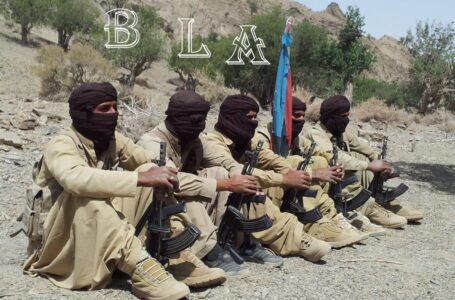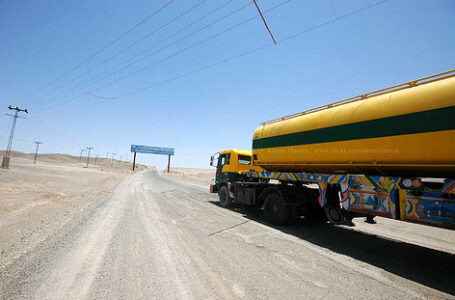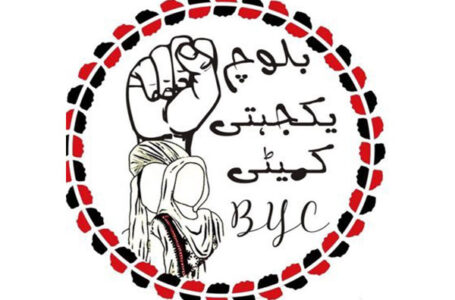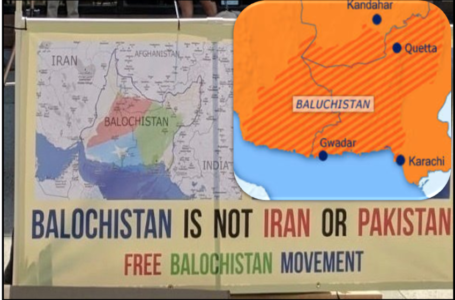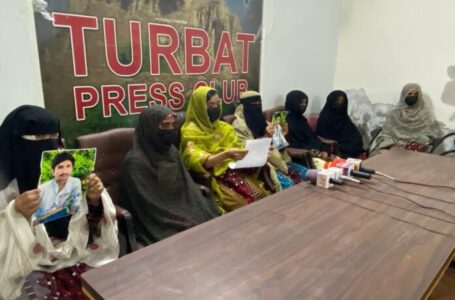Balochistan: Pakistani Forces’ Ration Supply Confiscated in Kulbar
When Even Gold Fails to Educate Children
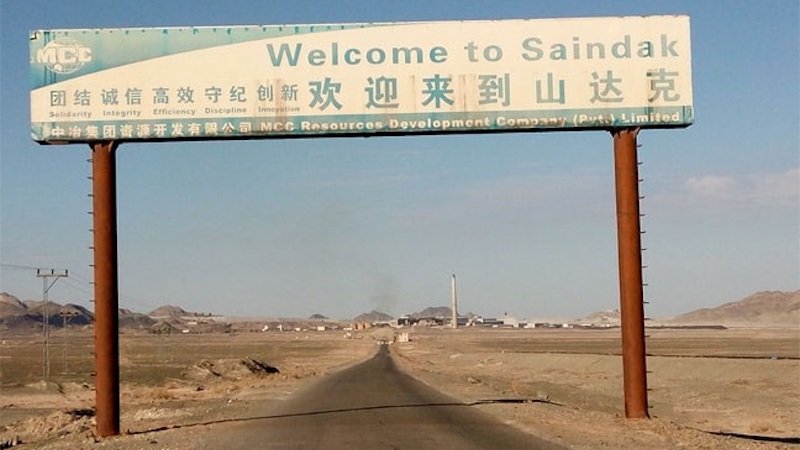
By Shoaib Baloch
In the southwest of Balochistan, lies Saindak Gold Mine. The people here live a simple life- barely able to even make ends meet with the meagre income they receive. For these local people, surviving in their meagre environment on some mere dollars is a daily struggle.
Most of the people around Saindak and Taftan depend on their insufficient incomes to provide for their families. There is no social welfare network nor any governmental assistance, forcing them to rely solely on private charity. Even so, poverty is rampant with the majority of the population being illiterate and living on very little. Consequently, the majority of funds are applied towards daily needs such as food and clothes, while funds for the education of children are sparse.
The rural landscape of Balochistan holds many secrets—the most heartbreaking of which is schools that cannot even be recognized as schools. At first glance, the broken doors and the children sitting on the ground should stir the hearts of every passerby; however, the greater impact of this site is revealed when one looks more closely. The schools are composed of two or three teachers—all locals— none of whom have received the adequate education that could enable them to adequately teach the students.
This is the reality of schools around Saindak, and many other places in Balochistan. Although the government speaks of education and progress, they are unable to provide improvement to those most in need. These local teachers, though they may be doing their best, lack the resources and qualifications to equip their students with the knowledge they need to succeed. The students, too, are hindered by this situation, unable to advance as they ought and potentially missing out on potential opportunities in life.
The people around Saindak Gold Mine like Saindak, Taftan and Nuk Kundi are living in a desperate situation. Although they are surrounded by a gold mine which profits China and Pakistan more than 100 million dollars a year, the local people are not able to reap the benefits of this land’s wealth. For generations, the government of Pakistan has failed to share the gold’s bounty with the local people. Instead, the gold mine’s profits have gone to benefit only the country’s well-off elites, leaving the people of Taftan and other similarly situated communities with nothing more than a life of deprivation and distress.
It is egregious that the Saindak mining project in Balochistan is an example of an exploitative socio-economic situation that has had a long-term human cost on the local Baloch people, despite the potential financial benefits that the project could bring to Balochistan. While the copper and gold extracted from this site have gone on to support the government’s “economic initiatives”, the local Baloch people are not reaping any of these benefits. They continue to suffer from a lack of access to basic amenities such as clean drinking water, sanitation, and even education for their children due to the Chinese companies that are operating this project.
Since its inception in 2002, Chinese companies have had exclusive rights to the Saindak mining project, and the local Baloch people are not allowed to gain employment from the project. This has exacerbated the already struggling local economy, further reducing the potential benefits such a multi-billion dollar project could have on the surrounding communities.
Students’ right violations in Balochistan, is a huge issue one that has, unfortunately, often gone unrecognized and unaddressed. The government has, for years, neglected the plight of the Baloch people; instead, they focus their attention and resources on projects that favour their own respective interests and agendas.
In the wake of several offers by Chinese companies, the government is looking to exploit the natural resources found in the Saindak gold mine. Yet, despite the potential revenue it can bring, the government has not invested in supplying books, resources or facilities to the students of the region at all. The Pakistani authorities have not only failed to ensure quality education; they have also deprived students of their right to education.
The lack of educational facilities has rendered a generation of Baloch children living in the region to poverty and underdevelopment. Not only are they denied access to a quality education, but with years passing new generations won’t be able to even read and write.
There is an egregious lack of access to quality education. This unfortunate situation has had a devastating impact on the present and future of the region. Children are denied even the basic rights of education; where literacy and numeracy are virtually non-existent. This lack of access has posed an obstacle to the progress of generations of students and their communities in learning and developing the skills necessary to thrive socially and economically.
Many of the students in Chaghai are forced to gain their education outside of the classroom, as most families cannot afford to buy the necessary supplies and textbooks. Moreover, those families that are able to provide such essentials often struggle to have the basic electricity and internet connection needed for students to participate in their studies. Additionally, there is a severe lack of incentivising employment opportunities for educated professionals in the region. This further serves to discourage a majority of children from accessing and pursuing higher education.
The Pakistani government has created a big challenge for the people of this region. Located close to the artificial Iran-Pakistan border (Gold Smid Line), the area has been hit hard by the lack of economic development opportunities. The government has removed the economic incentives and resources necessary to create sustainable job growth and economic advancement. As a result, many of the townsfolk have been forced to take desperate measures in order to provide for their families.
The lack of economic prospects within Pakistan has forced many Baloch citizens to cross the Iranian border in order to make a living. Many attempts to trade goods or services for the merchandise needed to sustain their families, and some set up small businesses to better their circumstances. These small-scale endeavours, however, have brought immense risks with them, as the Iranian border forces have often been unforgiving with their methods of enforcement. Those who cross the border have been arrested or had their businesses shut down by Iranian officials, and many have been killed by the regime.
Many students and teachers living in the Taftan region have long suffered from the lack of students’ rights and educational opportunities. Unfortunately, this has been the reality for far too many in this region, yet their cries for help have largely gone unheard. Despite global human rights protocols and universal standards of education, the Pakistani military forces have routinely denied these rights and access to educational resources for these citizens.
In response to this dire situation, locals have mounted numerous attempts to make their voices heard. Yet in many of these cases, the activists and underage students have been subjected to illegal detention, got arrested and even gone missing by the Pakistani military. This harsh repression of human rights is in clear violation of basic freedoms, and it must be stopped if any progress is to be made.
Shoaib Baloch is a political and Human Rights activist based in London. He is the Press Officer of the Free Balochistan Movement UK Branch.


